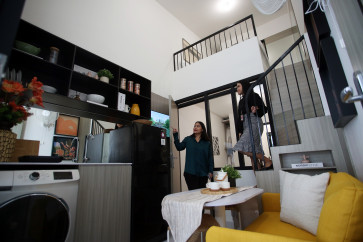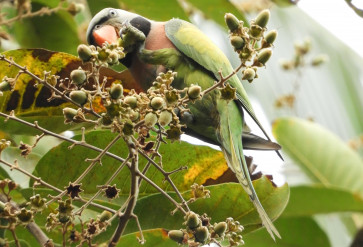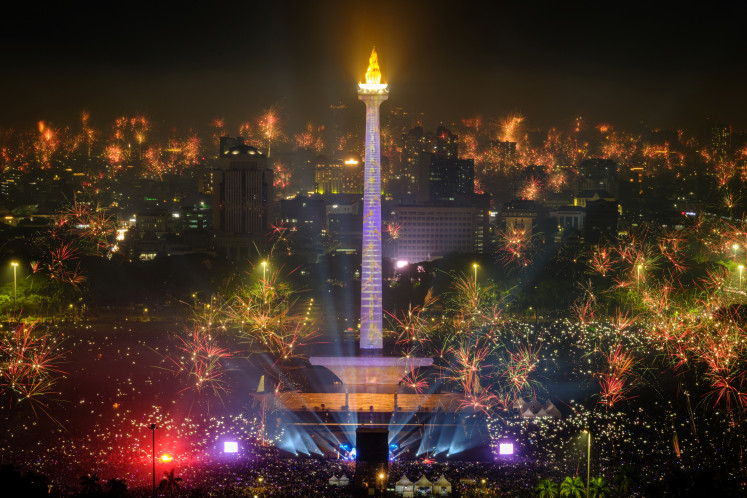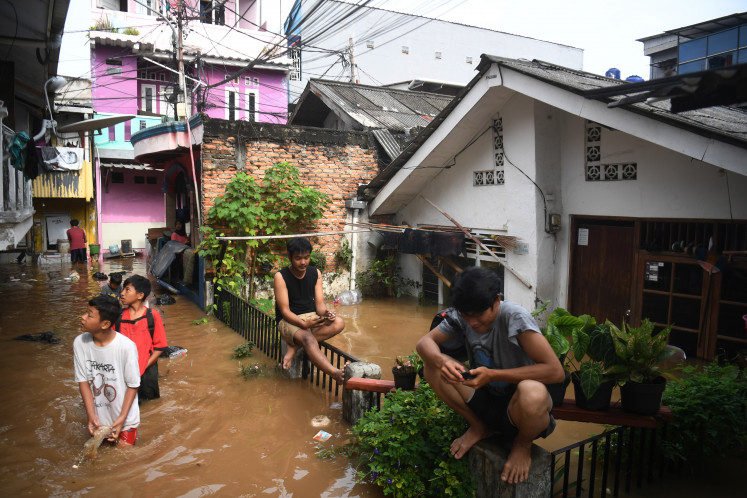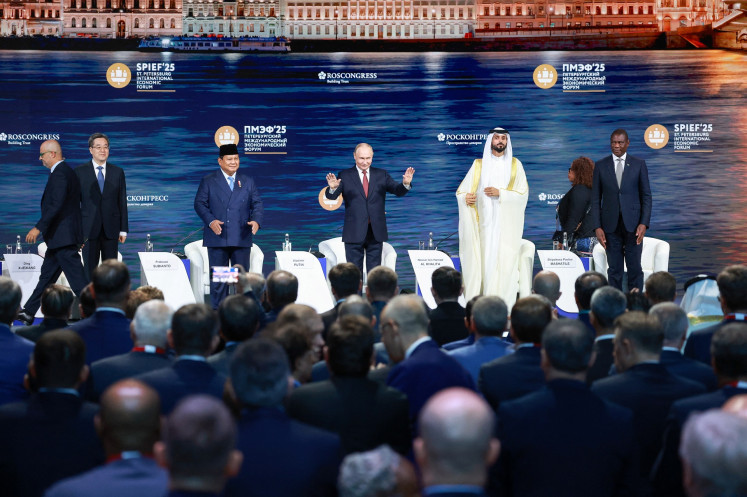Popular Reads
Top Results
Can't find what you're looking for?
View all search resultsPopular Reads
Top Results
Can't find what you're looking for?
View all search resultsEXECUTIVE Column: ‘Soaring oil prices are the least of the challenges facing Mandala’
Supported by the financial backing of diversified invesment firm Saratoga Group, Mandala Airlines has survived a period of internal restructuring and finally resumed business on April 5 and was back serving its traditional domestic routes
Change text size
Gift Premium Articles
to Anyone

S
upported by the financial backing of diversified invesment firm Saratoga Group, Mandala Airlines has survived a period of internal restructuring and finally resumed business on April 5 and was back serving its traditional domestic routes. The Jakarta Post’s Nurfika Osman recently spoke with Saratoga co-founder Sandiaga Uno to seek insights on what is in-store for the airline in the future and on his strategy to ensuring a success in the airline industry. Below are some excerpts from the interview.
Question: Why would you invest in the aviation industry?
Answer: We began investing in the aviation industry because we believe that this is a promising business and we will generate a lot of returns. The Indonesian market is very strong because it continues expanding middle-class society every year. It means that our economic conditions are getting better. Indonesians nowadays are flying from one place to another not only to see their children who study out of town or abroad, or to seek medical treatment, but also to travel. “Where are we going to go to spend on holiday this year?” That kind of question pops up in almost everyone’s mind now. This is what makes this business promising. Investing in Mandala is a middle class, consumer goods, and service-based investment. We are working in this business very seriously.
You started investing in the airline industry when global oil prices are increasing. How do you deal with this?
Yes, we are aware of the increasing global oil prices and we see this as a tough challenge for Mandala because Mandala has just recovered from a heartattack and started to fly again. It will be a very critical condition for Mandala in the next three to six months, but I am sure our management will be able to map out the problems and come up with the best solutions and strategies for Mandala. We will pay attention on how hard the increasing global oil prices impact the business, but at the same time we have to be able to offer competitive tariffs to our customers and keep expanding our business. The oil prices are not only a challenge for Mandala, but also for other airline companies in the country.
How will you balance your profit and expand your business at the same time in a difficult time such as this?
We are going to be very careful in conducting our business and the key for success in the low cost carrier business model is pressing down the cost as much as we can. Under the new CEO, Mike Coltman, we believe that we can make it work; the cost should be lower than the revenue so that we can generate profits. We know that it takes time to develop Mandala, but we are optimistic that Mandala will become one of the best airlines in Indonesia in the future. In the first three to six months, we are going to focus our work to penetrate the market and win the hearts of customers, and in the next nine to twelve months we are going to add more destinations. As a stakeholder, we are committed that we will keep the balance sheet strong and healthy.
How will you maintain Mandala’s aircraft and promote its safety at the lowest possible cost?
Safety is always first and we are not going to compromise even a little bit on safety. We will follow the safety standard. Maintenance of the aircraft is also part of safety and we will maintain our aircraft as best as we can. We hope we can use local maintenance facilities to reduce the cost because we apply a low cost carrier business model. But, the decision is in the hands of management.
How do you compete with strong low cost carrier players in the country, such as Lion and Citilink?
I am sure we can compete with them because the market is very promising, and for Saratoga Capital, this is not the first time we have played in businesses with many strong competitors. By applying the best key strategies in our business, having a new structure in Mandala, delivering the best safety and on-time performance, we will win the hearts of the customers to fly with us.
Airline passengers are increasing every year, such as at Soekarno-Hatta International Airport, which is predicted to have 60 million passengers by 2015. What is your target?
We want to cater to as many passengers as we can and control the market share as much as we can. But, that is not the only target. Customer satisfaction is also an important component in running the business because that is the key to winning the market and competing with other airlines.
Mandala will have 10 aircraft by the end of this year, putting us in a strong position in this business. Surely we need time to develop Mandala, and as a stakeholder, we will always be ready to support Mandala. We also have Tiger Airways as our strategic partner that has a lot of experience in the low-cost carrier business model. Thus, we believe that in the next five years, Mandala will become a dominant competitor in the country’s aviation business and there is a chance we can compete at the regional level.

